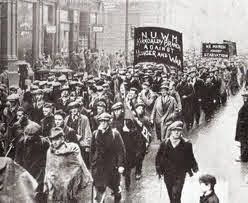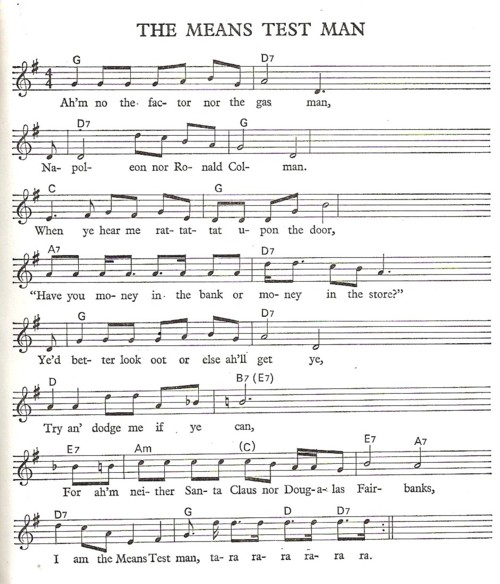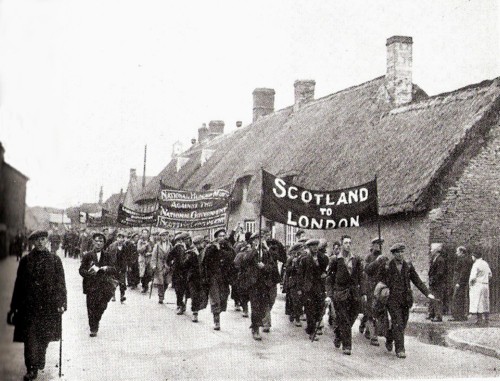Protest and Music
Music has always been a means of self expression and protest music has only started in the 20th Century and has made a tremendous impact on society. Music and protests has always tied together and has brought many people together to fight a similar cause.
Protests throughout the decades
Suffrage Movement: 1900-1920
"Ethel Smyth, Rebecca Clarke, and Dorthy Howell were the three leading English women composers. Their music was central to the suffrage campaigns of the 1910s and 20s. The four short pieces will be contextualised by readings from the composers’ diaries and letters, and those of fellow suffragettes and members of the Society for Women Musicians, founded in 1911. The concert ends with a rendition of the celebrated suffragette anthem, 'March of Women', composed by Ethel Smyth. Women in these protests highlight their achievements made by women are a means to protest the right for them to be independent."
~ "Songs of suffrage: a feast for the eyes and ears," Talking Humanities, 2018.
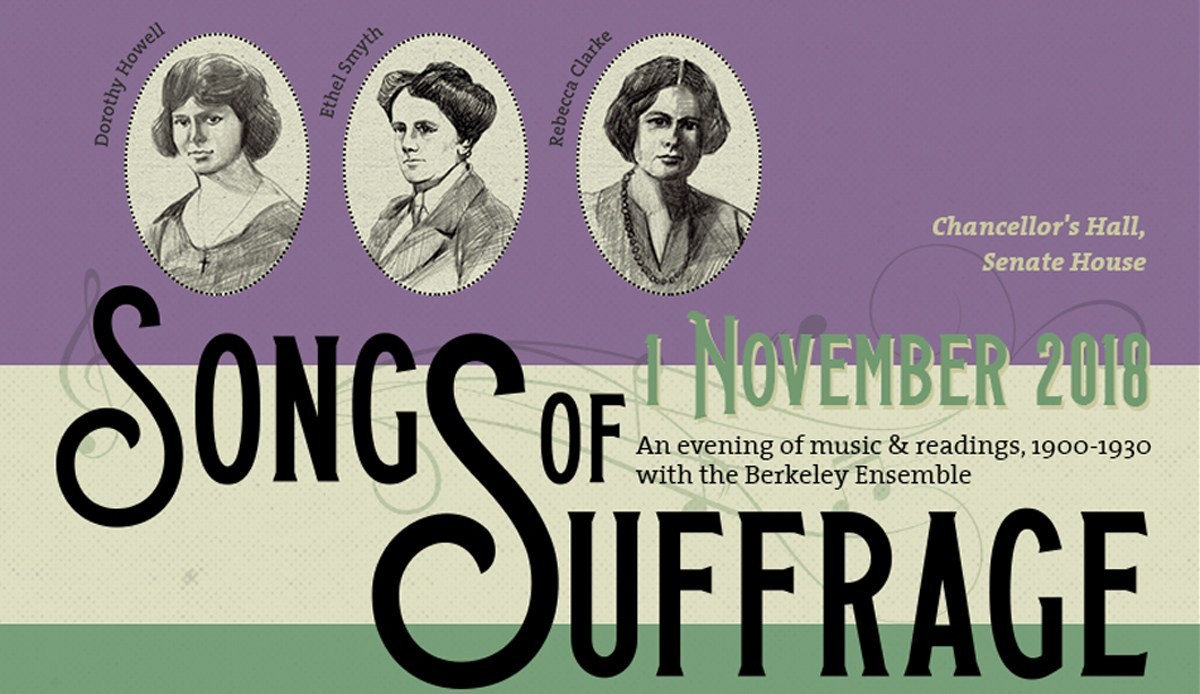
"Celebrating Songs of suffrage," Talking Humanities, 2018.
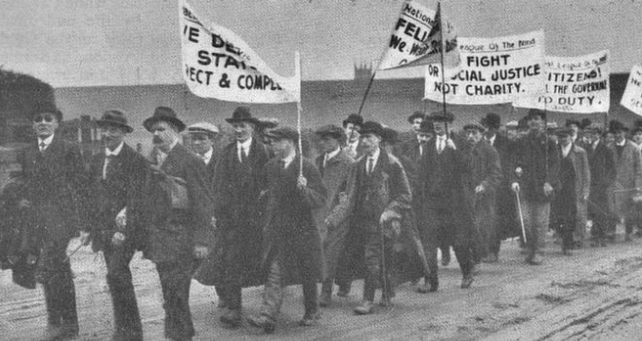
The 1920 blind march on London. From the Daily Sketch newspaper, 1920.
The Blind March of 1920
"The 1920 blind march was a protest march to London of 250 blind people from across the United Kingdom. It was organised by the National League of the Blind (NLB) to protest poor working conditions and poverty experienced by blind people. The marchers carried banners reading "social justice not charity" and were accompanied by music played on drums, toy trumpets and mouth organs."
~ "Campaigners step into history 100 years after Blind March." Able, circa 2010.
Scottish Hunger March 1933
"Massive numbers of people were out of work in those days, with the attendant poverty and misery. Readers of Three Days That Shook Edinburgh will themselves feel angry that so little has been done by the labour movement to organise and fight back against the ravages of unemployment in the present situation....The walls and ground of Holyrood that heard the music of Rizzio, and Mary Queen of Scots, hear the song of that murdered Irish leader, "The Rebel Song", and then the thunderous battle cry of the world's workers, 'The Internationale'.
~ McShane, Harry. "The story of the historic Scottish hunger march," 1933.
Civil Rights Movement in America 1960's
"Pete Seeger introduced Martin Luther King to We Shall Overcome and advised civil rights activists to form their own group, the Freedom Singers. "Songs have accompanied every liberation movement in history," he wrote. "These songs will reaffirm your faith in the future of mankind."
~"Pete Seeger: the man who brought politics to music." BBC.
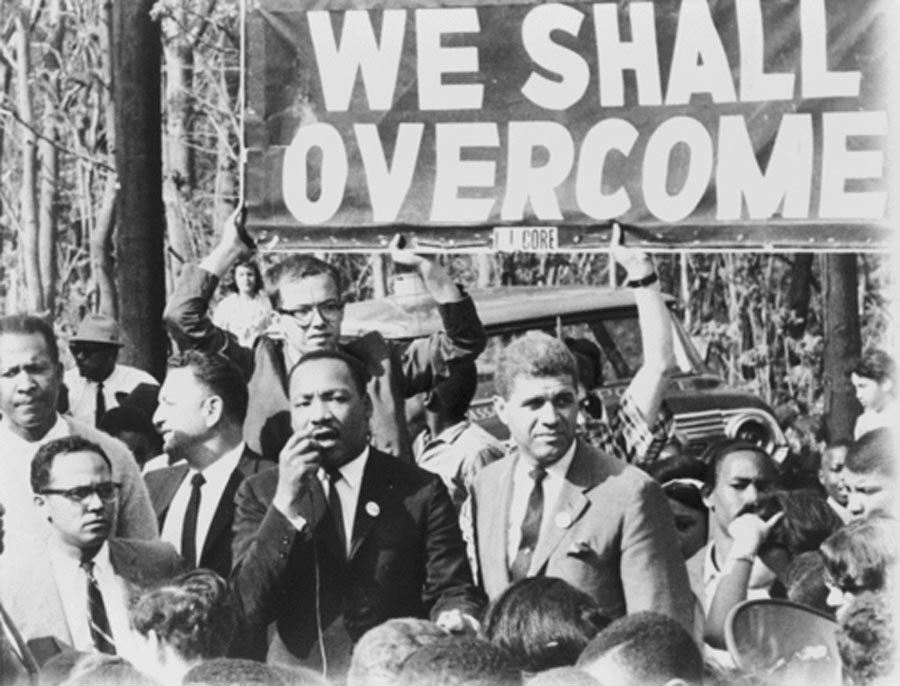
Music was a backbone of the civil rights movement in the United States. Anyone alive at that time will not forget the lines of marchers, arms linked singing “We shall overcome." U.S. Studies Online, circa 1964.
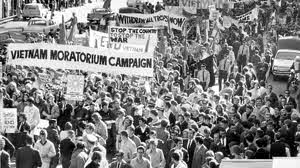
Vietname Moratorium Campaign, 1970.
The Anti-War Movement 1960's
"Give Peace a Chance written by British artist, John Lennon quickly became the anthem of the antiwar movement as many Americans felt the country should not be fighting in Vietnam. On October 15, 1969, a multi-city demonstration called The Moratorium to End the War in Vietnam, took place, with protesters singing this song in mass."
~"Give Peace a Chance." Bertrand, 1969.
Throughout the 20th Century, music has unified people despite their disabilities, gender, or race. It is not only a means of unification and fighting for ones' rights, but also pleasure and happiness. It is a universal language that everyone can comprehend and agree with. This means of communication is vital to the human race and has accompanied many movements to enact change and reforms.
